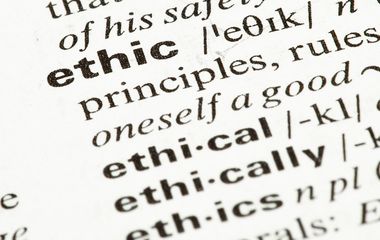
About Us
The Standards Commission is an independent body whose purpose is to encourage high ethical standards in public life through the promotion and enforcement of Codes of Conduct for councillors and those appointed to the boards of devolved public bodies.
Freedom of Expression
14th November 2022
Freedom of Expression
You may have heard the terms ‘freedom of expression’ or ‘freedom of speech’ before, often used in the context of politics and public life. But what does freedom of expression mean, why is it important, and does it have limits?
What does freedom of expression mean?
The right to freedom of expression is not a new concept – it is understood that a democratic principle of ‘free speech’ might have first emerged centuries ago in Ancient Athens. Fast forward to today, and the most important codification of the concept of freedom of expression in Scotland is that of Article 10 of the European Convention on Human Rights (ECHR), which was incorporated into UK law by the Human Rights Act 1998.
Article 10 of the ECHR states:
“Everyone has the right to freedom of expression. This right shall include freedom to hold opinions and to receive and impart information and ideas without interference by public authority and regardless of frontiers.”
The term ‘freedom of expression’ is used rather than ‘freedom of speech’ because the protection afforded by Article 10 covers not only speech, but also other forms of expression, such as gestures, photographs, wearing certain clothes and even ‘liking’ something on social media!
So why is protecting freedom of expression so important?
The right to express our opinions and to speak freely means that we can challenge and ask questions about the existing state of affairs which, in turn, can lead to change. Major changes in society, including women obtaining the vote and improvements in working conditions arose out of protest and opposition, whether legal or otherwise at the time. These developments would not have been possible in a society that did not at least in part tolerate free expression.
One of the core principles of a functioning democracy is that citizens should be able to express freely their opinions on how they would like to be governed and what the government should (and should not) do. Protecting freedom of expression allows marginalised groups to speak up without fear of being silenced, helping address systemic, institutionalised oppression. A free press allows the scrutiny of those in power, shedding light on abuses of power and corruption.
OK. So, does freedom of expression mean that someone can say or do whatever they like?
No. Article 10 is a qualified right. This means that an individual’s freedom of expression can be subject to restrictions in certain circumstances, for example, to protect the rights and reputations of others, to prevent the disclosure of confidential information, or to protect national security. The Courts have held, however, that any restrictions placed on an individual’s right to freedom of expression must be necessary and proportionate.
The Codes of Conduct for councillors and members of devolved public bodies in Scotland require councillors and members to treat others with respect, and to refrain from bullying and harassment. It is important to note that the Codes are not there to restrict councillors’ and members’ ability to freely express themselves, or to limit them in scrutinising, debating and putting forward ideas. They simply are required act respectfully and in a manner that doesn’t harm others or bring their council or public body into disrepute when doing so. If they do not, then it may be necessary and proportionate to place a restriction on their freedom of expression.
The Standards Commission has produced Advice Notes for both councillors and members of devolved public bodies on the Application of Article 10 ECHR, which can be found at: https://www.standardscommissionscotland.org.uk/education-and-resources/professional-briefings. These Advice Notes set out the approach the Standards Commission will take when matters regarding a councillor’s or board member’s freedom of expression arise.

